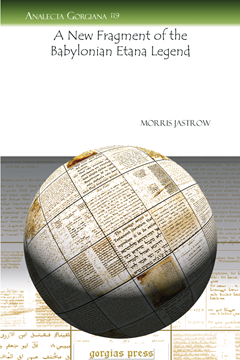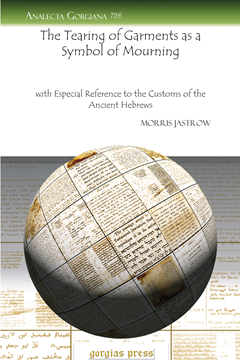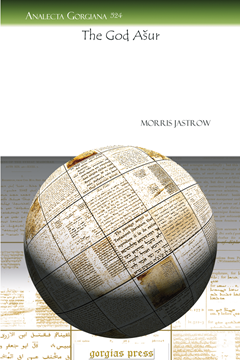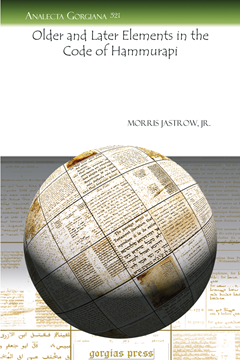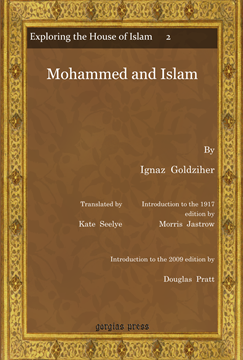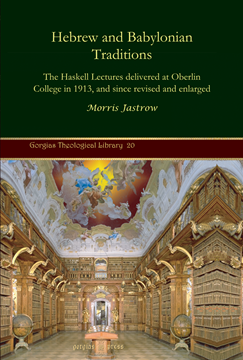Morris Jastrow
A New Fragment of the Babylonian Etana Legend
Series: Analecta Gorgiana 119
ISBN: 978-1-60724-054-9
This fragment of the Babylonian Etana legend was first published in this brief paper by Morris Jastrow. The fragment is presented here in transliteration and translation along with the able textual commentary of an acknowledged leader among philologists. Following the presentation of the text, Jastrow also offers an interpretation of the text, suggesting where within the Etana legend the fragment fits. Line drawings and photographs of this singular fragment accompany the text of the article. Also included in this volume is a brief piece by Friedrich Delitzsch on Neo-Babylonian contract tablets.
$38.00 (USD) $22.80 (USD)
The Tearing of Garments as a Symbol of Mourning
With Especial Reference to the Customs of the Ancient Hebrews
Series: Analecta Gorgiana 726
ISBN: 978-1-61143-020-2
The tearing of garments and putting on sackcloth are common acts mentioned together in the Hebrew Bible. The author argues that these customs exhibit a tendency in religious observances to revert to the ways of an earlier time.
$34.00 (USD) $20.40 (USD)
The God Ašur
Series: Analecta Gorgiana 524
ISBN: 978-1-61719-039-1
The name Asur is difficult. In cuneiform, it is designated for the city, country, and deity. However, it appears that the deity was named after the city, which emerged first.
$37.00 (USD) $22.20 (USD)
Older and Later Elements in the Code of Hammurapi
Series: Analecta Gorgiana 521
ISBN: 978-1-61719-036-0
Jastrow addresses how the final codification of the laws of Hammurapi evolved and which process the Babylonians used to get there. The Code of Hammurapi was subject to constant adjustments, providing that conditions constantly changed and new situations arose.
$38.00 (USD) $22.80 (USD)
Mohammed and Islam
By Ignaz Goldziher; Translated by Kate Seelye; Introduction to the 1917 edition by Morris Jastrow; Introduction to the 2009 edition by Douglas Pratt
Series: Exploring the House of Islam: Perceptions of Islam in the Period of Western Ascendancy 1800-1945 2
ISBN: 978-1-60724-410-3
Ignaz Goldziher was a pre-eminent scholar of Islam during the late 19th and early 20th centuries. This book encapsulates his own lifetime of work and provides something of an historical commentary on his epoch in the Western academic study of Islam. One of its strengths is that Goldziher’s investigation of historical development probes into underlying religious motivations and allied theological issues. The book quickly became a classic of its day. It remains a classic that, in our day, is well worth re-visiting as it can still inform our understanding of contemporary Islam, whose roots lie in all that Goldziher covers.
$180.00 (USD) $108.00 (USD)
Hebrew and Babylonian Traditions
The Haskell Lectures delivered at Oberlin College in 1913, and since revised and enlarged
Series: Kiraz Theological Archive 20
ISBN: 978-1-59333-618-9
In this formidable study, Jastrow compares several aspects of the religious life of the Israelites and ancient Babylonias by comparison of their written texts. Among the topics examined are the creation and flood accounts, the concept of the Sabbath, and the ethics of both cultures.
$180.00 (USD) $108.00 (USD)

